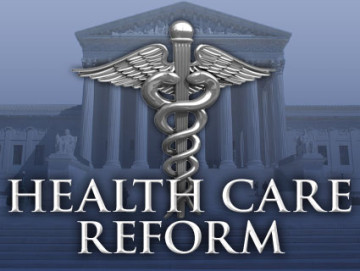Health Care Costs Skyrocket Since 2010
Tuesday, October 04, 2011
After several years of modest premium increases, annual premiums for employer-sponsored family health coverage have skyrocketed by nine percent since 2010, up to $15,073 this year, according to a Kaiser Family Foundation/Health Research & Educational Trust 2011 Employer Health Benefits Survey.
On average, workers pay $4,129 and employers pay $10,944 toward those annual premiums. Premiums increased significantly faster than workers’ wages (2.1 percent) and general inflation (3.2 percent). Since 2001, family premiums have increased 113 percent, compared with 34 percent for workers’ wages and 27 percent for inflation.
"This year’s nine percent increase in premiums is especially painful for workers and employers struggling through a weak recovery," Kaiser President and CEO Drew Altman, Ph.D. said.
GET THE LATEST BREAKING NEWS HERE -- SIGN UP FOR GOLOCAL FREE DAILY EBLASTIf We Do Nothing, Costs Will Rise
The report comes just weeks after two major health-related announcements were made in Rhode Island. Last month, a Census report said that one in eight non-elderly people living in Rhode Island (119,000) had no health coverage in 2009-2010, an increase of 8,000 from the prior year. A week later, Governor Chafee signed an executive order to create a health benefits exchange in the state, a move seen as the next step in providing insurance to all Rhode Islanders.
Lt. Governor Elizabeth Roberts said the state can moderate the large increases in the health care costs.
"Expanded access to quality, affordable health insurance for all Rhode Islanders is critically needed," she said."The federal health reform law gives us tools, such as the Health Benefits Exchange, to allow real changes to be made to start to moderate the sharp increases in the cost of health care. What the Kaiser report clearly shows us is that if we do nothing, costs will only continue to rise.”
Several Employers Have Already Implemented Health Reform Laws
The survey of small and large employers provides a detailed picture of trends in private health insurance costs and coverage. This year’s survey also looked at employers’ experiences with several already implemented provisions of the 2010 health reform law affecting employer coverage.
According to the survey, 2.3 million young adults were added to their parents’ family health insurance policies as a result of the health reform provision that allows young adults up to age 26 without employer coverage on their own to be covered as dependents on their parents’ plan. Young adults are more likely to be uninsured than any other age group.
"The law is helping millions of young adults to obtain health coverage. In the past, many of these young adults would have lost coverage when they left home or graduated college," said study lead author Gary Claxton, a Kaiser vice president and co-executive director of the Kaiser Initiative on Health Reform and Private Insurance.
When he signed the executive order, Governor Chafee praised the idea of a benefits exchange.
“The Exchange will give more Rhode Islanders access to affordable health coverage,” he said.
The Numbers
The study also found that 31 percent of covered workers are in high-deductible health plans, facing deductibles for single coverage of at least $1,000, including 12 percent facing deductibles of at least $2,000. Covered workers in smaller firms (3-199 workers) are more likely to face such high deductibles, with half of workers in smaller firms facing deductibles of at least $1,000, including 28 percent facing deductibles of $2,000 or more.
These numbers in part reflect the rise of consumer-driven plans, which are high-deductible plans that include a tax-preferred savings options such as a Health Savings Account or Health Reimbursement Arrangement.
Over the past two years, more firms have started to offer these plans, and the share of covered workers enrolled in this type of plan has doubled, from 8 percent in 2009 to 17 percent in 2011. Plans that can be used with a Health Savings Account have lower premiums than other plan types, but must have annual deductibles of at least $1,200 for an individual and $2,400 for a family this year.
When the Governor signed his executive order, Lt. Governor Roberts said the exchange will change the way Rhode Islanders purchase health coverage.
“Today, the Governor took a major step in fundamentally changing the status quo for how Rhode Islanders purchase health coverage,” Roberts said. “More importantly, the purchasing power of individuals, families and small businesses will be brought together in a way that will allow real changes to be made to start to moderate the sharp increases in the cost of health care.”
If you valued this article, please LIKE GoLocalProv.com on Facebook by clicking HERE.





